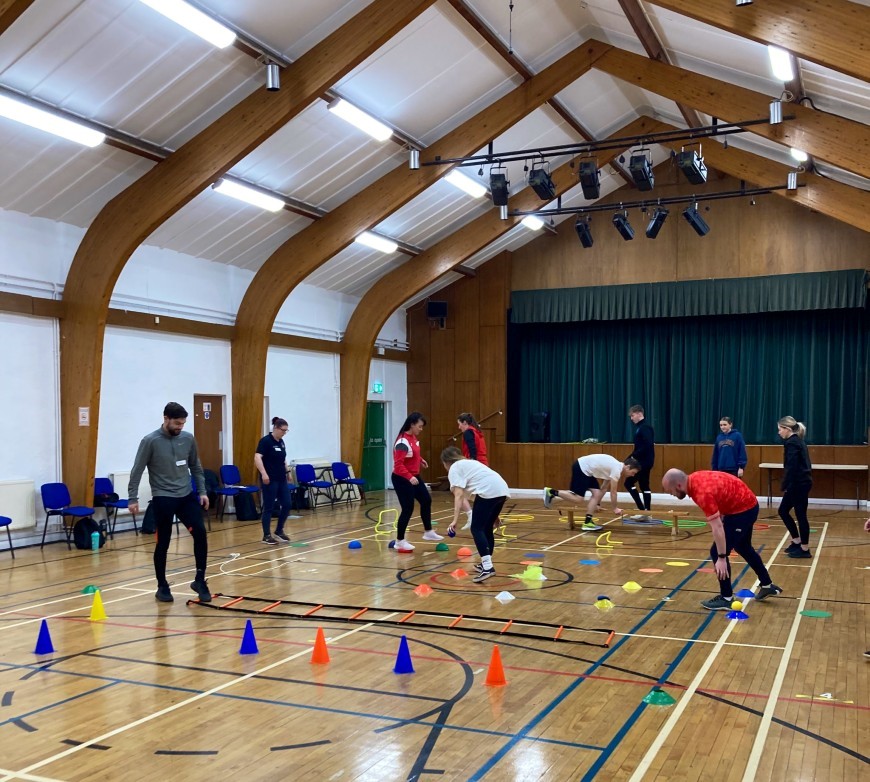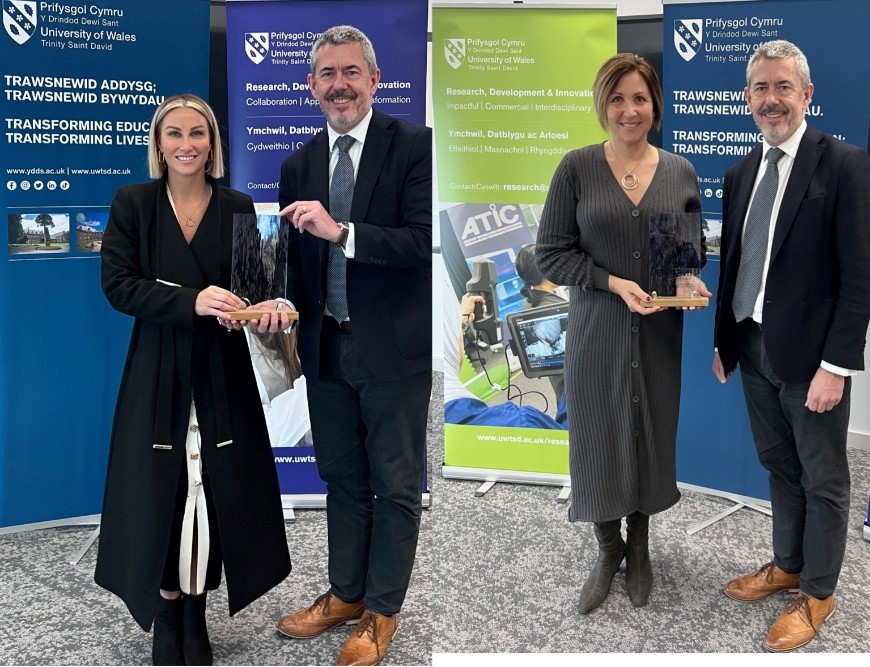Health and Physical Literacy newsletter launched to promote Physical Development in Early Childhood.

The Wales Academy for Health and Physical Literacy at the University of Wales Trinity Saint David has launched a newsletter that will support physical development in early childhood.
The newsletter, published quarterly, will highlight how high-quality movement in early childhood is essential for laying the foundations of physical activity, health, well-being and academic outcomes. It will provide practitioners with new ideas and ways to support quality movement, share research updates and inform the SKIP-Cymru community about upcoming training.
The newsletter is for practitioners who have been involved with the SKIP – Cymru project and in the first edition it shares the latest news, festive activities ideas and updates on upcoming training courses.
SKIP – Cymru (Successful Kinaesthetic Instruction for Pre-schoolers) accredited training is tailored for all practitioners working with children and families. It empowers practitioners to analyse movement and create environments that support children’s physical development in a play-based, inclusive approach.
This work has been recognised for its impact as a recommendation in Senedd Cymru’s Health and Social Care and Sport Committee report on the Physical Activity of Children and Young People as a case study for the Journey to a Healthier Wales support materials for the Well-being of Future Generations Act.
Dr Nalda Wainwright, Director of the Wales Academy for Health and Physical Literacy at UWTSD said:
“We are pleased to share good practice and additional ideas to continue to support teachers and practitioners. The strong evidence base for this work gives staff the reassurance that they are improving children’s movement skills when they keep using the principles in their work.”

SKIP – Cymru training has helped to address the increasing issue of inactivity, children living with obesity, declining health and poor academic outcomes. By training practitioners from education, health, community and family settings, this framework can support children’s health and well-being by understanding how high quality movement in the early years is needed for physical development, movement in early childhood creates connections in the brain and supports speech, language and literacy. It also helps to show how fundamental movement skills (FMS) underpin later physical activity and health. Not all skills develop just through playing and need to be taught in a developmentally appropriate way to meet the specific needs of each child, and of course, children’s physical development is fundamental to self-esteem, confidence, and resilience, supporting mental health and well-being.
One Early Learning Years Instructor said after attending a SKIP- Cymru training session:
“The SKIP training I have attended has been such a fantastic source of information and ideas to put into practice. It’s so interesting to learn the science behind why movement from a young age is so important. The trainers have a wealth of knowledge to impart, and I have come away full of new ideas, enthusiasm and new found passion that in my role as an ELY instructor”
Another teacher added:
“The beauty of this inclusive and holistic pedagogy has been the freedom to adapt each session including the focus and level of challenge, to achieve the maximum benefits for each pupil regardless of their starting point”
During the training, cohorts discover about the physical development from birth to middle childhood including early childhood development, sensory motor integration and developmental milestones. They learn about the contribution of movement to wider child development, including cognitive development, social skills, language and communication, self-esteem as well as confidence and resilience.
It also offers a range of approaches for developing a broad movement vocabulary which supports variety and quality in physical activity, and a chance to learn more about theories of motor development and how it can be applied through a range of strategies into practice. Practitioners learn how to observe and analyse developmental stages of children’s motor skills and make judgements about the appropriate equipment and tasks to support children’s development in a play-based approach. The training also provides clear strategies for managing groups of children in physical activity with inclusive practice for all abilities and disabilities.
The SKIP – Cymru team has recently won the Research, Innovation Excellence & Impact award at UWTSD’s INSPIRE awards.

Click here to read the newsletter
To find out about SKIP – Cymru course dates and to book onto a course email: kirsty.edwards@uwtsd.ac.uk
For more information about the Wales Academy for Health and Physical Literacy, please visit: Wales Academy for Health and Physical Literacy | University of Wales Trinity Saint David (uwtsd.ac.uk)




